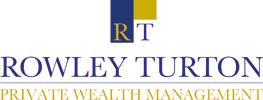Incorporating Your Small Business? Watch out for this pension pitfall
January 21, 2023
The Impact of Incorporation on Personal Pension Contributions
Small businesses often incorporate and move from being self-employed sole traders or partnerships to becoming limited companies. And there are many good reasons to do so. However, the owners of those businesses need to be aware of a potential pensions issue regarding that transition from self-employment to becoming an employed director.
The Impact of Incorporation on Personal Pension Contributions
That potential issue is in regard to any personal pension contributions that they were making when they were self-employed.
When someone is self-employed, they can normally make contributions to their pension based on their entire self-employed income, albeit there is the £40,000 a year annual allowance to be aware of. However, when they become an employed director, their earnings change to a salary, typically around £10-£12,000 per annum, with the balance of their income being via dividends from the company.
Restrictions on Pension Contributions: Understanding Relevant Earnings
The above change can create an issue because pension contributions are restricted to relevant earnings, which are salary but not dividends for employed directors.
In the UK, relevant earnings refer to the income that an individual receives from their employment that is subject to National Insurance Contributions (NICs). This includes salary or wages, as well as any bonuses, commission, or other earnings that are paid as a result of the individual’s employment. Relevant earnings do not include dividends, rental income, or income from other self-employment or investment activities.
When it comes to pension contributions, relevant earnings are used to calculate the amount that an individual can contribute to a personal pension plan without incurring additional taxes. The amount of relevant earnings that an individual can have and still be able to make full contributions is called the annual allowance. For the tax year 2021-2022, the annual allowance is £40,000.
It’s important to note that if an individual’s relevant earnings are less than £40,000, they can still make contributions to their personal pension plan, but the annual allowance will be proportionately lower. Additionally, for those with adjusted income over £240,000, their annual allowance will be tapered down.
The Potential Impact on Retirement Savings: Lower Contributions Due to Reduced Salary Compared to their Self-Employed Earnings
So, if an individual’s new director salary is lower than their self-employed earnings, then their relevant earnings will also be lower. This could mean that they are unable to make the same level of pension contributions as they did when they were self-employed. This could have a significant impact on their long-term retirement savings.
The Tax Implications: Exceeding Relevant Earnings and creating a Tax Bill
However, perhaps the more immediate concern is that if your contributions exceed your relevant earnings, this will create a tax bill.
This is a problem that I recently spotted for a local Leicester-based builder. The builder incorporated earlier in the tax year; unfortunately, the company’s accountant hadn’t pointed out this issue to our client. The good news is that I spotted the problem, just in time, at the client’s annual review, and we acted promptly and made some changes to save the client from what would have been a very unwelcome tax bill. Just one of the ways that a regular meeting with your financial adviser can add value. We also suggested he consider switching to our accountant.
It’s essential for the self-employed to carefully consider the potential effects of incorporation on their pension contributions and to plan accordingly. This may include increasing contributions before the transition, setting up employer contributions via the limited company, or finding other ways to supplement their retirement savings.
It’s also worth noting that, despite the potential pitfall in this article, incorporating can offer significant other advantages regarding pension contributions. In particular, your limited company can make employer contributions that are not restricted to your relevant earnings. However, it is essential to have a comprehensive review of your financials and plan before making any significant changes.
Consulting a Financial Advisor: Navigating the Pensions Implications of Incorporation
In summary, a change from self-employed to employed director with reduced salary and higher dividends can give significant tax or national insurance advantages. However, it can create a problem regarding any personal pension contributions the former self-employed person makes due to pension contributions being restricted to relevant earnings. It is essential to consult with a financial advisor and plan accordingly to minimise the impact on your tax bill and your retirement savings.

